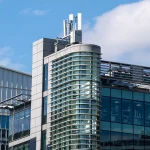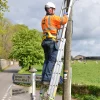Software Federation Want UK ISP Anti-Piracy Rules Extended to 4G and WiFi
The not-for-profit Federation Against Software Theft (FAST), which campaigns for the legitimate use of software, has called on the UK government to extend its controversial anti-piracy Digital Economy Act (DEAct) to tackle customers using the next generation of 4G connectivity and public wi-fi.
The current act requires the country’s biggest consumer broadband ISPs (BT [PlusNet], Orange UK [EE], O2, Sky Broadband, TalkTalk and Virgin Media) to issue warning letters about the detection of unlawful activity on a related customers account. Repeat offenders could also find their personal details being shipped on to Rights Holders for possible legal action, with the prospect of account “suspension” (disconnection) still looming high for the future.
Advertisement
Despite the acts many problems, such as its inability to identify the actual offender (at best it will only catch the connection owner), FAST believes that the DEA was drafted at a time when mobile and wifi networks “were not deemed sufficiently conducive for effective and wholesale copyright infringement” and wants to see the act updated to reflect the improvements being made by 4G superfast mobile broadband networks and the rapid spread of public wifi services.
Julian Heathcote Hobbins, General Council at FAST, said:
“The DEA has the potential to be a valuable piece of legislation in the fight against illicit peer-to-peer copyright infringement and a significant development for rights holders as an educational programme. However, the DEA must remain timely. The issue is that by the time the DEA is finally implemented, technology could have moved on so far making the Act ineffective in helping to deal with those using 4G networks to share files. In its current form the DEA is not sufficiently flexible in scope to account for advances in technology.”
It should be stressed that Ofcom doesn’t currently envisage the first notification letters being sent until early 2014. The regulator has also confirmed that a review of which ISPs are included within the scope of its Code would only be conducted after it has been in operation for 6 months.
Meanwhile the Mobile Broadband Group (MBG) has repeatedly said that there is “no evidence of significant volumes of infringing content on mobile networks“, which currently still suffer from heavy data usage restrictions and some have also imposed strict Traffic Management measures and service blocks (especially against P2P transfers). It remains to be seen what kind of impact 4G will have.
At the same time Ofcom has excluded most commercial public wifi operators from its code because the costs of participation would be disproportionately high compared to the expected low reduction in overall levels of online copyright infringement, although public libraries and schools continue to have concerns (here). As it stands public wi-fi has spread but the service itself is not significantly different from what it was in 2010.
Advertisement
Jonathan Cornthwaite, Member of FAST’s Legal Advisory Group (FLAG), added:
“The irony here is that the Government dropped a key element of Clause 18 during wash-up which could have effectively future-proofed the Act, leaving enough room in its scope to account for methods of copyright infringement not yet considered. As we are now witnessing, technology does not stand still and gaps are appearing in the DEA as the use of mobile devices accelerates. Unless this situation can be remedied, it may be of less assistance, leaving rights holders with a watered down remedy.”
Clause 18 is a reference to the bitterly opposed website blocking measures, which Ofcom binned one year ago after it discovered that “the provisions as they stand would not be effective” (here). Indeed such web censorship measures are incredibly easy to circumvent, much as the recent Newzbin and The Pirate Bay blocks have repeatedly shown (example). Meanwhile here’s another example of just how dangerous web blocking could become if there are no safeguards against abuse.
It should be said that the government is still eyeing a voluntary solution to this web-blocking problem for its forthcoming Comms Bill but that too is still a couple of years away.
Mark is a professional technology writer, IT consultant and computer engineer from Dorset (England), he also founded ISPreview in 1999 and enjoys analysing the latest telecoms and broadband developments. Find me on X (Twitter), Mastodon, Facebook, BlueSky, Threads.net and Linkedin.
« EU Requests Minor Changes for Broadband Delivery UK State Aid Clearance

















































Comments are closed